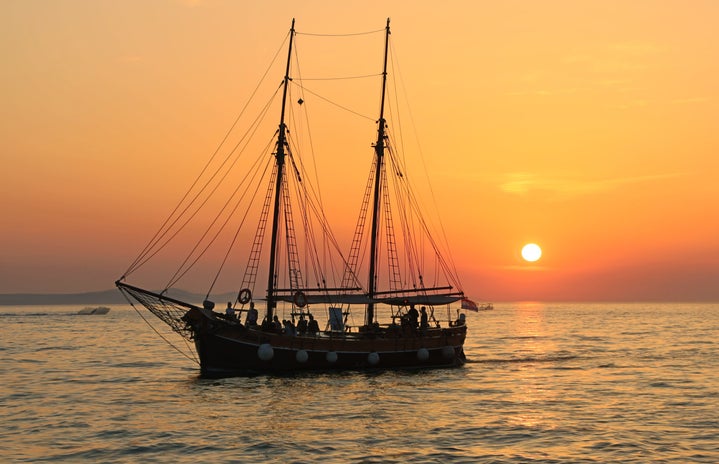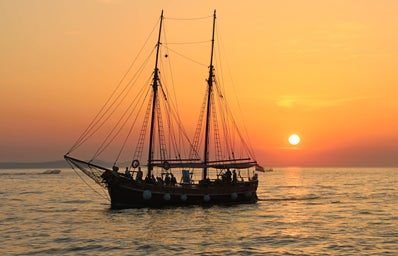Coined as the “Vietnamese Boat People,” more than a million citizens fled Vietnam between 1975 and 1992 as they risked their entire lives to travel in tiny boats across a vast uncharted territory. Some emerged from this perilous voyage as triumphant while others were not so lucky; however, no matter what their journey was like, they all had the same exact aim―to escape the communism and oppression that overrun their once-peaceful home.
… this is my dad’s story.

“I remember my mom coming to my class, asking my teacher if I could leave. She made up a story of how I needed to go because a family member had just died. But I knew it wasn’t true, and that’s when I knew something was up,” he said.
Turns out his family had been planning to escape Vietnam for a while at that point, but it was kept a secret from my dad and all four of his siblings. While my dad spent his days with friends at school like any typical teenager, his parents were quietly planning their excursion to freedom with two of their next-door neighbors, who also had children of their own.
Shortly after being pulled out of school, my dad came home to discover that they were leaving that same night.
“My parents just came to me and said ‘we’re going to take a trip to the countryside.’ They didn’t actually tell us we were going to the U.S,” he said.
Under a dark and stormy-swept sky, my dad, family, and neighbors traveled to the city of Vĩnh Bình, where they stealthily hopped onto a miniature-sized boat. Given that the boat was only about 20 feet long and 7 feet wide, they were forced to squeeze tightly together for an entire week while they ventured out to another land―Malaysia.
The journey itself was no easy feat. Leaving the country was already considered a forbidden crime at the time, and getting caught meant lengthy jail time and complete confiscation of your home. With these enormous risks weighing down on their shoulders, my dad’s family had no choice but to limit the stocks of food and water on their boat to keep the escape as low-profile as possible.
While his grandparents and other men navigated the boat to the neighboring country, my dad and other passengers fought to survive.
“On top of feeling sea-sick, we felt hungry and thirsty. We had to drink river water, and a small portion of food was rationed to each person, just enough so that they didn’t starve. Some people actually got really sick and dehydrated, including my little sister. We almost thought she wasn’t going to make it,” my dad explained.

Just when the journey was about to reach the halfway point, the boat was greeted by a set of oncoming pirates. Fearful the pirates were going to hurt them, my dad’s family braced themselves as the pirates ransacked them. Jewelry, watches, money, and rings were taken out of their possession. As frightening as this moment was, simultaneously, a sense of relief had washed over my dad’s family when they realized the pirates would do nothing more except rob them. Pirates were known to kill passersby and for some reason, they were spared.
“The pirates gave us food and water, and also told us how far we were from the land. We were extremely lucky, some people got killed by [the] pirates or lost at sea. And only half of the boats actually made it alive,” he said.
Four days after this encounter of life and death, the Malaysian shoreline came into view. My dad’s family immediately caught the eye of the locals, and it was there where they were reported to the police and arrested. The following day, several UN refugee representatives interviewed them―asking how many passengers were on board and why my dad’s family left. “They checked our I.D’s and paperwork, and then sent us to a refugee camp. We learned some English there and were interviewed again by countries that were accepting refugees. Eventually, we were accepted by the U.S, and they sent us on a plane there.”

“The language barrier was a huge challenge, but I overcame that by taking an ESL class at my high school: English as a Second Language,” he said. “Other than that, I was just a normal teenager like everyone else.”
My dad eventually finished off his high school years in America and went off to college, where he earned a degree in Computer Science and Electronics Engineering. Reflecting back on his past, he hopes his story can shed some light on the importance of hard work, and that anyone can become successful no matter the obstacles or your background.




